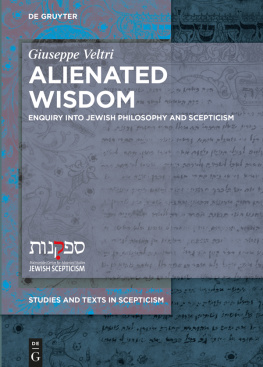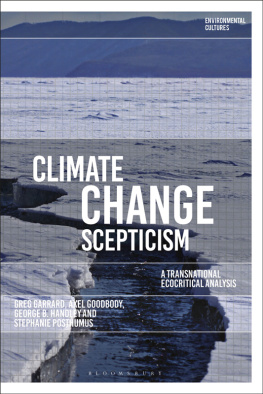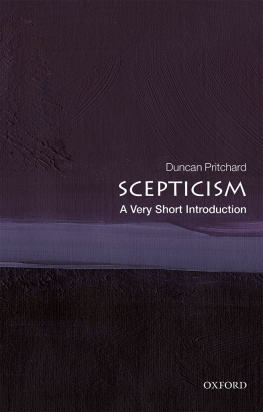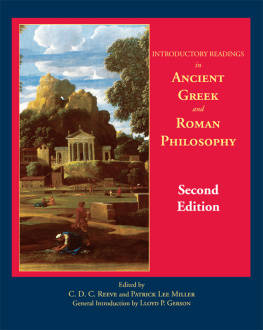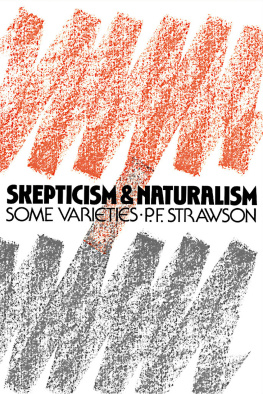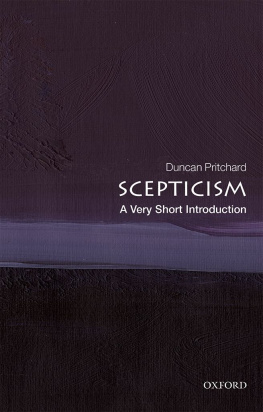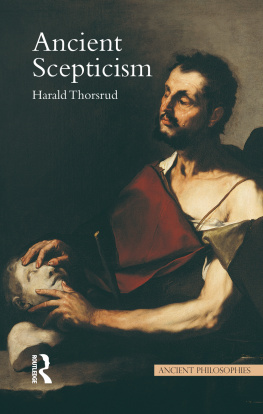Patrick - Sextus Empiricus and Greek Scepticism
Here you can read online Patrick - Sextus Empiricus and Greek Scepticism full text of the book (entire story) in english for free. Download pdf and epub, get meaning, cover and reviews about this ebook. genre: Science. Description of the work, (preface) as well as reviews are available. Best literature library LitArk.com created for fans of good reading and offers a wide selection of genres:
Romance novel
Science fiction
Adventure
Detective
Science
History
Home and family
Prose
Art
Politics
Computer
Non-fiction
Religion
Business
Children
Humor
Choose a favorite category and find really read worthwhile books. Enjoy immersion in the world of imagination, feel the emotions of the characters or learn something new for yourself, make an fascinating discovery.
Sextus Empiricus and Greek Scepticism: summary, description and annotation
We offer to read an annotation, description, summary or preface (depends on what the author of the book "Sextus Empiricus and Greek Scepticism" wrote himself). If you haven't found the necessary information about the book — write in the comments, we will try to find it.
Sextus Empiricus and Greek Scepticism — read online for free the complete book (whole text) full work
Below is the text of the book, divided by pages. System saving the place of the last page read, allows you to conveniently read the book "Sextus Empiricus and Greek Scepticism" online for free, without having to search again every time where you left off. Put a bookmark, and you can go to the page where you finished reading at any time.
Font size:
Interval:
Bookmark:
The Project Gutenberg EBook of Sextus Empiricus and Greek Scepticism, by
Mary Mills Patrick
This eBook is for the use of anyone anywhere at no cost and with
almost no restrictions whatsoever. You may copy it, give it away or
re-use it under the terms of the Project Gutenberg License included
with this eBook or online at www.gutenberg.org
Title: Sextus Empiricus and Greek Scepticism
Author: Mary Mills Patrick
Release Date: January 20, 2006 [EBook #17556]
Language: English
*** START OF THIS PROJECT GUTENBERG EBOOK SEXTUS EMPIRICUS AND GREEK ***
Produced by Turgut Dincer, Ted Garvin and the Online
Distributed Proofreading Team at http://www.pgdp.net
The following treatise on Sextus Empiricus and Greek Scepticism has been prepared to supply a need much felt in the English language by students of Greek philosophy. For while other schools of Greek philosophy have been exhaustively and critically discussed by English scholars, there are few sources of information available to the student who wishes to make himself familiar with the teachings of Pyrrhonism. The aim has been, accordingly, to give a concise presentation of Pyrrhonism in relation to its historical development and the Scepticism of the Academy, with critical references to the French and German works existing on the subject. The time and manner of the connection of Sextus Empiricus with the Pyrrhonean School has also been discussed.
As the First Book of the Hypotyposes, or Pyrrhonic Sketches by Sextus Empiricus, contains the substance of the teachings of Pyrrhonism, it has been hoped that a translation of it into English might prove a useful contribution to the literature on Pyrrhonism, and this translation has been added to the critical part of the work.
In making this translation, and in the general study of the works of Sextus, the Greek text of Immanuel Bekker, Berlin, 1842, has been used, with frequent consultation of the text of J.A. Fabricius, 1718, which was taken directly from the existing manuscripts of the works of Sextus. The divisions into chapters, with the headings of the chapters in the translation, is the same as Fabricius gives from the manuscripts, although not used by Bekker, and the numbers of the paragraphs are the same as those given by both Fabricius and Bekker. References to Diogenes Laertius and other ancient works have been carefully verified.
The principal modern authors consulted are the following:
Ritter, Geschichte der Philosophie, II. Auf., Hamburg, 183638.
Zeller, Philosophie der Griechen, III. Auf., Leipzig, 187989.
Lewes, History of Philosophy, Vol. I., London, 1866.
Ueberweg, History of Philosophy, IV. ed., translated by Morris, 1871.
Brochard, Les Sceptiques Grecs, Paris, 1877.
Brochard, Pyrrhon et le Scepticism Primitive, No. 5, Ribot's Revue Phil., Paris, 1885.
Saisset, Le Scepticism Aensidme-Pascal-Kant, Paris, 1867.
Chaignet, Histoire de la Psychologie des Grecs, Paris, 1887-90.
Haas, Leben des Sextus Empiricus, Burghausen, 1882.
Natorp, Forschungen zur Geschichte des Erkenntnisproblems bei den Alten, Berlin, 1884.
Hirzel, Untersuchungen zu Cicero's philosophischen Schriften, Leipzig, 1877-83.
Pappenheim, Erluterung zu des Sextus Empiricus Pyrrhoneischen Grundzgen, Heidelberg, 1882.
Pappenheim, Die Tropen der Greichischen Skeptiker, Berlin, 1885.
Pappenheim, Lebensverhltnisse des Sextus Empiricus, Berlin, 1887.
Pappenheim, Der angebliche Heraclitismus des Skeptikers Ainesidemos, Berlin, 1887.
Pappenheim, Der Sitz der Schule der Griechischen Skeptiker, Archiv fr Geschichte der Philosophie, I. 1, S. 47, 1887.
Maccoll, The Greek Sceptics from Pyrrho to Sextus, London, 1869.
My grateful acknowledgments are due to Dr. Ludwig Stein, Professor of Philosophy in the University of Bern, for valuable assistance in relation to the plan of the work and advice in regard to the best authorities to be consulted. Thanks are also due to Dr. Louisos Iliou, of Robert College, Constantinople, for kind suggestions concerning the translation.
| PAGE |
| THE HISTORICAL RELATIONS OF SEXTUS EMPIRICUS |
| Introductory paragraph.The name of Sextus Empiricus. His profession.The time when he lived.The place of his birth.The seat of the Sceptical School while Sextus was at its head.The character of the writings of Sextus Empiricus. |
| THE POSITION AND AIM OF PYRRHONIC SCEPTICISM |
| The subject-matter of the Hypotyposes.The origin of Pyrrhonism.The nomenclature of Pyrrhonism.Its criterion.Its aim. and .The standpoint of Pyrrhonism. |
| THE SCEPTICAL TROPES |
| Origin of the name.The ten Tropes of .The First Trope.The Second Trope.The Third Trope.The Fourth Trope.The Fifth Trope.The Sixth Trope.The Seventh Trope.The Eighth Trope.The Ninth Trope.The Tenth Trope.The five Tropes of Agrippa.The two Tropes.The Tropes of Aenesidemus against Aetiology. |
| AENESIDEMUS AND THE PHILOSOPHY OF HERACLITUS |
| Statement of the problem.The theory of Pappenheim.The theory of Brochard.Zeller's theory.The theory of Ritter and Saisset.The theory of Hirzel and Natorp.Critical examination of the subject. |
| CRITICAL EXAMINATION OF PYRRHONISM |
| Pyrrhonism and Pyrrho.Pyrrhonism and the Academy. Strength and weakness of Pyrrhonism. |
| THE FIRST BOOK OF THE PYRRHONIC SKETCHES BY SEXTUS EMPIRICUS, TRANSLATED FROM THE GREEK |
Interest has revived in the works of Sextus Empiricus in recent times, especially, one may say, since the date of Herbart. There is much in the writings of Sextus that finds a parallel in the methods of modern philosophy. There is a common starting-point in the study of the power and limitations of human thought. There is a common desire to investigate the phenomena of sense-perception, and the genetic relations of man to the lower animals, and a common interest in the theory of human knowledge.
While, however, some of the pages of Sextus' works would form a possible introduction to certain lines of modern philosophical thought, we cannot carry the analogy farther, for Pyrrhonism as a whole lacked the essential element of all philosophical progress, which is a belief in the possibility of finding and establishing the truth in the subjects investigated.
Before beginning a critical study of the writings of Sextus Empiricus, and the light which they throw on the development of Greek Scepticism, it is necessary to make ourselves somewhat familiar with the environment in which he lived and wrote. We shall thus be able to comprehend more fully the standpoint from which he regarded philosophical questions.
Font size:
Interval:
Bookmark:
Similar books «Sextus Empiricus and Greek Scepticism»
Look at similar books to Sextus Empiricus and Greek Scepticism. We have selected literature similar in name and meaning in the hope of providing readers with more options to find new, interesting, not yet read works.
Discussion, reviews of the book Sextus Empiricus and Greek Scepticism and just readers' own opinions. Leave your comments, write what you think about the work, its meaning or the main characters. Specify what exactly you liked and what you didn't like, and why you think so.








